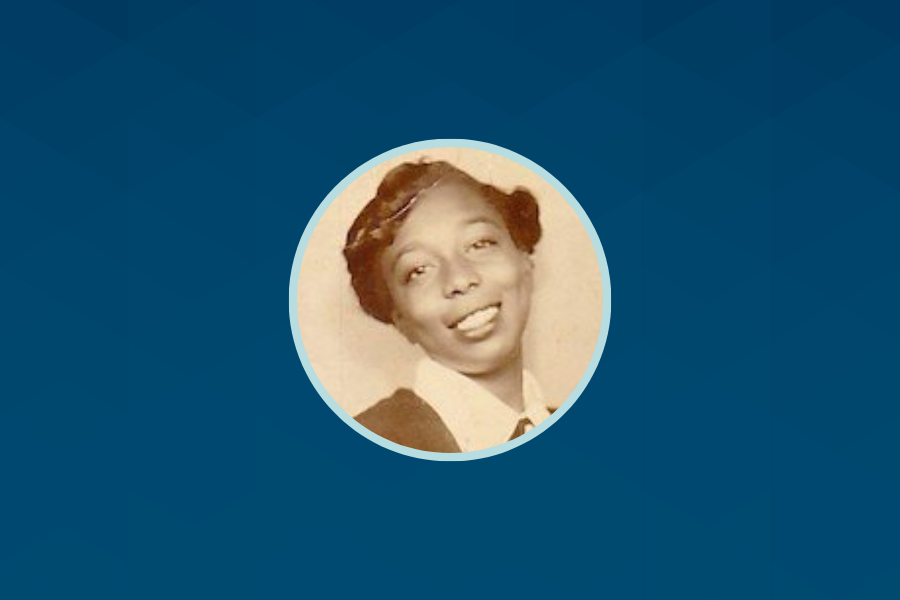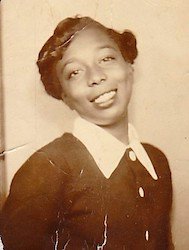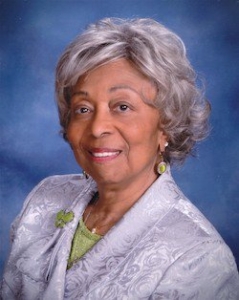
“My advice to students is to be aggressive in your studies. Learning anesthesia requires stamina and a good brain. You have to know chemistry, pharmacy, and physiology because you are trying to get an education that will help your community and all of your patients for many years to come,” encouraged Shirley Patterson Theodore, BSN, RN, CRNA Emeritus.
As the first African-American Certified Registered Nurse Anesthetist (CRNA) in the City of New Orleans and State of Louisiana, Theodore is truly a Living Anesthesia Legend.

“I first heard about anesthesia when we were doing our clinical rounds as nursing students. I noticed these special nurses doing obstetrical anesthesia in the operating room and giving reports to nurses in the recovery room. I asked someone who they were. Once I found out, I said that’s what I’m going to do. I was told that they never had a nursing student from Dillard University admitted into the anesthesia program, but I was determined,” she recalled. Theodore worked for one year before applying to nurse anesthesia school.
The Pelican State native began anesthesia school in 1959 and graduated from the Flint-Goodridge / Charity Hospital School of Anesthesia in New Orleans and passed the National Certification Examination in 1960. Theodore credits her mentors and instructors with her successful matriculation through the program, namely Dr. John Adriani, Director of Anesthesia at Charity Hospital, and Miss Eola Lyons Baker at Flint-Goodridge who was both her didactic instructor and what would now be considered clinical preceptor.
“I was in anesthesia school during an antiquated time, but 40-plus years ago I enjoyed learning about neurology and cardiovascular considerations as they related to anesthesia. There were many days I went home smelling like ether and ethylene. Back then if a woman needed a cesarean section, we’d give them masked oxygen and dripped ether or ethylene anesthesia through a non-woven sponge over the patient. Many anesthesia providers died from inhaling too much ethylene or ether anesthesia over time,” explained Theodore. “God was with us for sure!”
Ms. Theodore passed the AANA National Certification Exam in 1960. “I have always felt very fortunate to be a CRNA. I often think about a woman who would fill in from time to time in the operating room giving anesthesia when I was an anesthesia student. When I graduated and began working at Flint-Goodridge Hospital, I realized she was giving anesthesia, but she wasn’t certified and was never allowed to sit on the stool during the case.”
“I graduated with people from all over the country, but none of the others were from Louisiana. My classmates were from Alabama, Illinois, Texas, Michigan, Washington, D.C., Georgia, and North Carolina, but everyone returned to their home state once we graduated. We fought hard to get good grades and high marks in clinical. During our clinicals we were not allowed to sleep inside the hospital or in the student dormitories. The Black students had to sleep in a two-story building behind Flint-Goodridge the entire time we were in anesthesia school. Nevertheless, all of us were very diligent in our studies. Besides myself, there’s one other person still living from my graduating class, and we still talk on the phone quite often.”

In the years after becoming a CRNA, Ms. Theodore desired to become more active in her professional association on both the state and national levels. “By this time there were four African-American CRNAs, and we would travel together to the national AANA meetings. Ms. McQuillen welcomed us to the national meetings.” Florence McQuillen was the AANA Executive Director from 1948 to 1970. “Ms. McQuillen also fought to help us gain permission to attend the state meetings in Louisiana. We were able to attend the national meetings before the state meetings until the Civil Rights Act was passed.” In 1964, Congress passed the Civil Rights Act of 1964 that prohibited discrimination based on race, color, religion, sex, or national origin.
“I would like to urge the younger generation of CRNAs and students to attend the state and national meetings. I wasn’t afraid to show up and be the only woman, minority, and Black person at the meeting.” Ms. Theodore rose to the position of chief nurse anesthetist at Flint-Goodridge Hospital and was also an instructor.
“If you want to be a CRNA, you must be a strong person and have stamina. You can’t be a crybaby; otherwise, how can you stand up for your patients? I had to tell the doctors in the operating room, you do your work and I’ll do my work and keep the patients alive. I do the anesthesia in here!”
About Shirley Patterson Theodore
Shirley Patterson Theodore is 86 years old and resides in Kenner, LA. She has been married to Mr. Richard A. Theodore, Jr for nearly 60 years. A CRNA for 42 years, she spends some of her time speaking to nursing students at Dillard University and attending meetings for the Dillard University Professional Organization of Nurses (DUPON). She is also an active 66-year member of Delta Sigma Theta Sorority, Incorporated.
Ms. Theodore was recently honored by Dillard University’s College of Nursing (DUCON), as one of their 2022 “DUCON Greats.” Theodore earned her Bachelor of Science degree in Nursing Education from Dillard University in 1958. In addition, her graduate studies included Administration and Supervision at Tulane University. Furthermore, she is a 1954 graduate from McDonough #35 High School, where she was sixth out of 46 students.